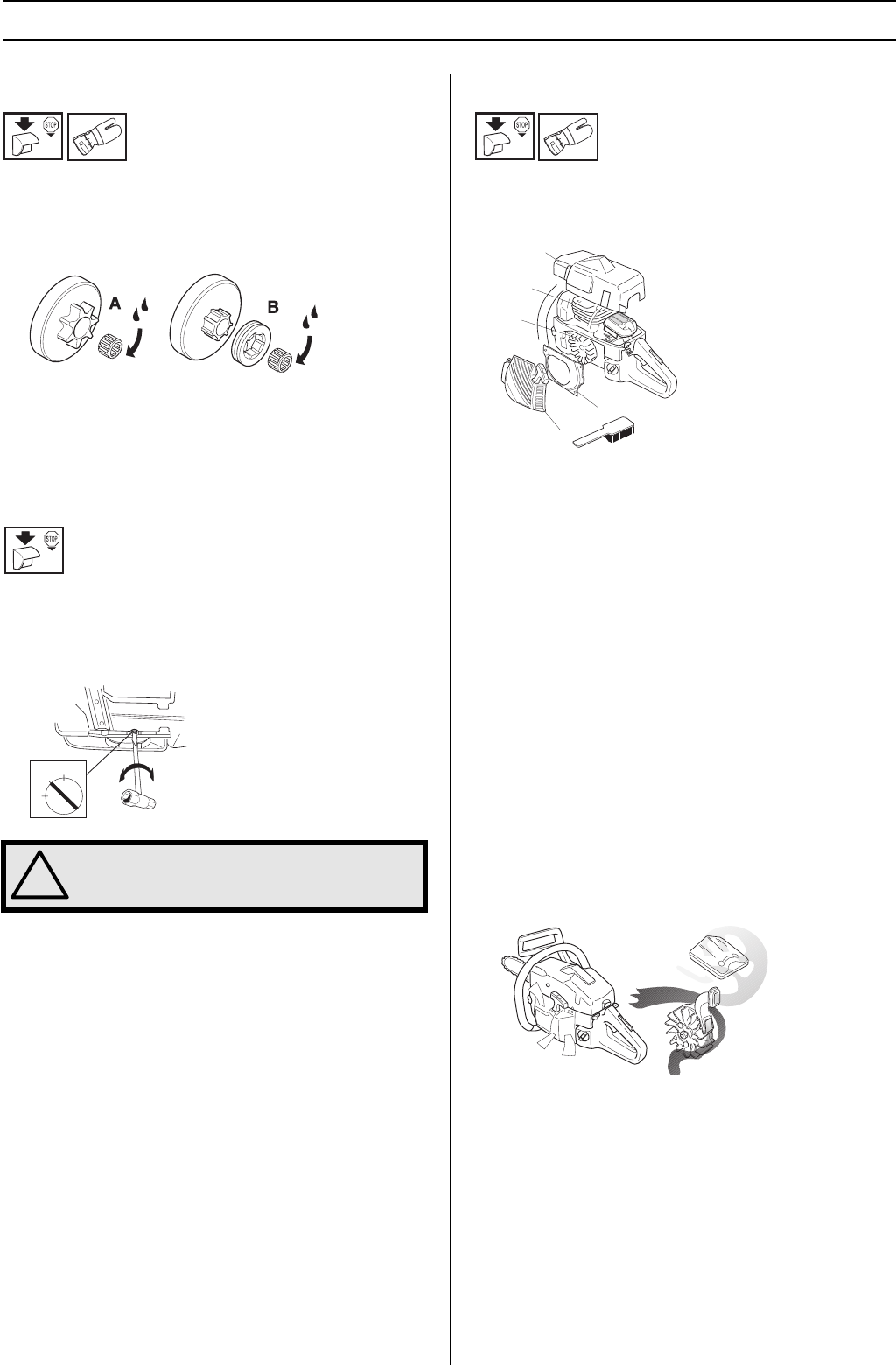
English – 33
MAINTENANCE
Needle bearing lubrication
The clutch drum is fitted with one of the following drive
sprockets:
A Spur sprocket (the chain sprocket is welded on the drum)
B Rim sprocket (replaceable)
Both versions have a needle bearing on the drive shaft, which
has to be greased regularly (once a week).
CAUTION! Use only high quality bearing grease or engine oil.
Adjustment of the oil pump
The oil pump is adjustable. Adjustments are made by turning
the screw using a screwdriver or combination spanner. The
machine is supplied from the factory with the screw set to
position 2. Turning the screw clockwise will reduce the oil flow
and turning the screw anti-clockwise will increase the oil flow.
Recommended settings:
Bar 13"-15": Position 1
Bar 15"-18": Position 2
Bar 18"-20": Position 3
Cooling system
To keep the working temperature as low as possible the
machine is equipped with a cooling system.
The cooling system consists of:
1 Air intake on the starter.
2 Air guide plate.
3 Fins on the flywheel.
4 Cooling fins on the cylinder.
5 Cylinder cover (directs cold air over the cylinder).
Clean the cooling system with a brush once a week, more
often in demanding conditions. A dirty or blocked cooling
system results in the machine overheating which causes
damage to the piston and cylinder.
CAUTION! The cooling system on a chain saw with catalytic
converter must be cleaned daily. This is particularly important
on chain saws with catalytic converters, because the higher
exhaust temperature requires efficient cooling of the engine
and the catalytic converter unit.
Centrifugal cleaning “Turbo”
Centrifugal cleaning means the following: All air to the
carburettor passes through the starter. Dirt and dust is
centrifuged out by the cooling fan.
IMPORTANT! In order to maintain operation of the centrifugal
cleaning system it must be regularly maintained.
Clean the air intake to the starter, the fins on the flywheel, the
space around the flywheel, inlet pipe and carburettor
compartment.
!
WARNING! The engine must not be running
when making adjustments.
–
+
1
2
3
1
2
5
4
3


















